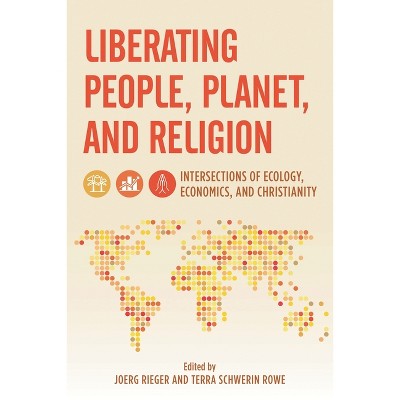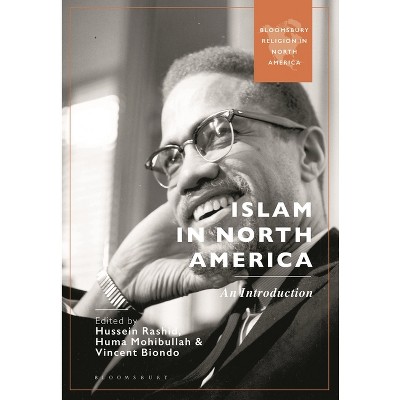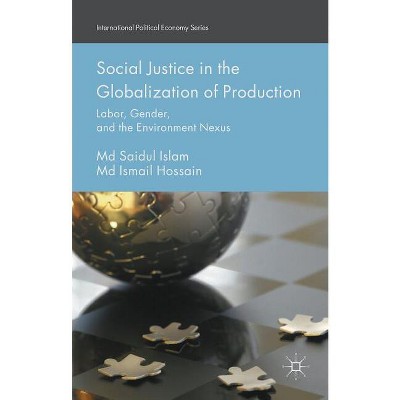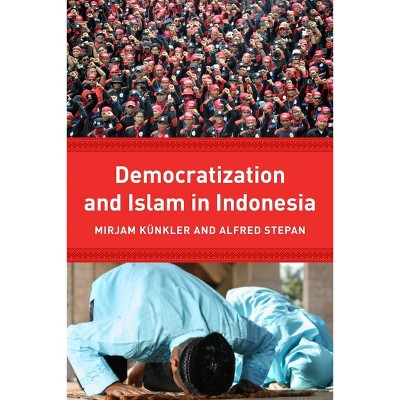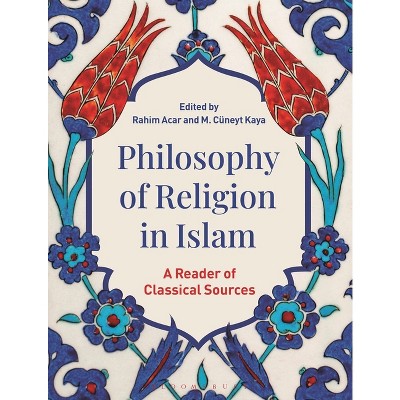Sponsored

Islam in the Age of Globalization - (Religion in the Modern World) by Asif Mohiuddin (Paperback)
In Stock
Sponsored
About this item
Highlights
- Islam in the Age of Globalization explores the complex relationship between Islam and globalization.
- About the Author: Asif Mohiuddin is an Academic Officer in the Faculty of Human Sciences, Sultan Idris Education University, Malaysia.He is the author of Navigating Religious Authority in Muslim Societies: Islamist Movements and the Challenge of Globalisation, (2023).
- 358 Pages
- Religion + Beliefs, Islam
- Series Name: Religion in the Modern World
Description
About the Book
Islam in the Age of Globalization explores the complex relationship between Islam and globalization. From challenging prevailing notions to examining historical influences and contemporary perspectives, this book delves into the multifaceted dimensions of Islam's interaction with international forces.Book Synopsis
Islam in the Age of Globalization explores the complex relationship between Islam and globalization. From challenging prevailing notions to examining historical influences and contemporary perspectives, this book delves into the multifaceted dimensions of Islam's interaction with international forces.Review Quotes
Islam in the Age of Globalization explores facets of the debate on the relevance of Islam and Islamic values to issues of globalization and the emerging global society. Dr. Mohiuddin explores important contributions made by the Islamic traditions to develop a more inclusive social order. The book is important addition to the ongoing debate on the nature and trajectory of globalization and the relevance of Islam to global humanity.
An insightful presentation of Islam's that reviews multifaceted perspectives of traditionalist, reformist, and modernist thinkers as to how Islam is shaping and being shaped by its interaction with the globalized world.
In his work, Dr. Mohiuddin provides a masterful exploration of how global dynamics are reshaping the contours of Islamic thought and practice. The book's nuanced examination of globalization's multifaceted impact on Muslim societies is both timely and profound, offering readers a comprehensive understanding of the complex interplay between tradition and modernity. With keen insights into the ideological, cultural and political ramifications of globalization, this work stands as an indispensable resource for scholars, students and anyone interested in the evolving landscape of Islam in the contemporary world.
About the Author
Asif Mohiuddin is an Academic Officer in the Faculty of Human Sciences, Sultan Idris Education University, Malaysia.He is the author of Navigating Religious Authority in Muslim Societies: Islamist Movements and the Challenge of Globalisation, (2023). Previously, he served as a post-doctoral fellow in the Faculty of Theology, Sakarya University, in Turkey from 2021 to 2022. Prior to joining Sakarya University, he worked as a lecturer in the Department of Higher Education, Government of Jammu and Kashmir, India. He received his PhD from the University of Kashmir in 2018. His research interests include globalization and Islam, intersection between politics and religion in the Middle East, human rights law, Islam and the West and Muslim minorities in multicultural societies (Europe and South Asia).Shipping details
Return details
Trending Non-Fiction







